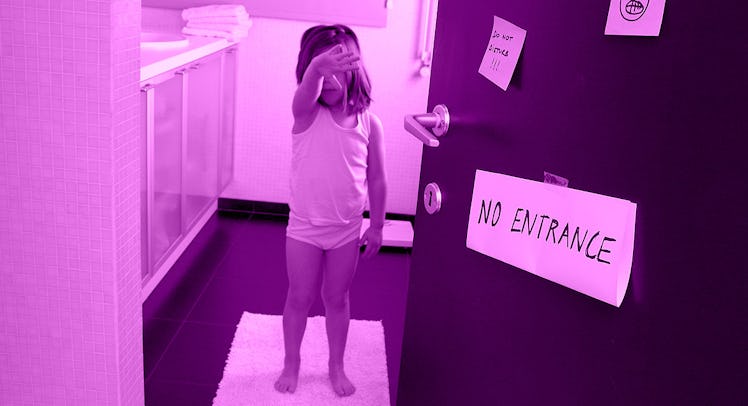Why Parents Shouldn’t Worry if Their Kid Masturbates Frequently
Humans are sexual creatures and children learn early that touching themselves is both relaxing and enjoyable. There is nothing wrong with that.

Parents are often too squeamish about sex. We may be hesitant to acknowledge that our children are sexual beings, sometimes in defiance of our own childhood experiences. And nowhere is the clash between parents, kids, and pleasure more real than when a child discovers masturbation. The shock of realizing that a child is touching himself or herself can cause parents to feel shocked, panicked and worried.
“We are sexual being from womb to tomb,” Eric Marlowe Garrison, clinical and forensic sexologist at William and Mary University told Fatherly. Masturbation is a form of self-soothing, Garrison explains, particularly for young children who lack any sexual context for the activity. Children may consider putting their hands in their diapers as comforting as sucking their thumbs and, until they are told otherwise, they see no difference between the two. Ultrasounds have even revealed unborn babies touching their own genitals in utero. “There is no distinction between a thumb and a penis, or rubbing a foot and rubbing a vulva,” Garrison says.
What makes the act lurid is the adult’s perspective—we are the ones who tell them that what they’re doing is sexual and not just pleasurable. Which means parents need to get out of their kids’ innocent heads and stop sexualizing non-sexual behaviors. That said, Garrison allows that children should be told that this is private behavior. “Healthy masturbation helps us respect our own boundaries. That’s why doing it in private is important,” he says. “It needs to be done in our own bedrooms out of sound and sight of other people.”
There are some very specific instances in which masturbation should raise red flags for parents. If a young child insists on masturbating in public, or is trying to insert objects into themselves, rather than simply rub themselves, or is using adult language while they masturbate, these could be signs of sexual abuse.
Frequent masturbation is seldom an issue. “Masturbation is problematic the same way for a child as it would be for an adult,” Garrison says. “If the child does not come to dinner, does not participate in other activities or is consistently late, whatever the case may be, that’s when I would say it’s time to reduce the activity.”
This article was originally published on